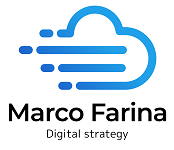Nonprofit organizations do a lot of selfless work for our communities. This includes disaster management, a charity for orphans, and social welfare just to name a few. Most nonprofit organizations find it challenging to manage their workforce especially when it extends globally. Imagine trying to keep track of over 50,000 volunteers who are not from the same geographical location. Current nonprofit organization systems experience frequent breakdowns because of a single reason: lack of an industry-standard common data model to lay the foundation for building data-driven applications.
Fortunately, Microsoft in conjunction with popular nonprofit organizations such as Team Rubricon,ITDRC, UNDP, and the American Red Cross, has developed a comprehensive and interoperable Common Data Model for Nonprofits. This data model along with sample apps from PowerApps, Power BI dashboards, and sample data comprises the Dynamics 365 Nonprofit accelerator.

It is now possible to build solutions for nonprofit organizations based on the Common Data Model for nonprofits. These solutions can leverage entities used by nonprofit organizations such as fundraising, constituent management, program delivery, awards, and impact tracking that are in the nonprofit accelerator. Based on this accelerator, the solutions to achieve the following objectives can be realized:
- Beneficiary and program delivery management,
- Fundraising,
- Volunteer management, and
- Finance and operations.
Components and release dates
Microsoft released 3 key components for the nonprofit accelerator from October 2020 to March 2021.
- Frontline humanitarian logistics
- Volunteer management
- Assessment management.
All of these were generally available by 16th December 2020. They are enabled for users by admins, makers, or analysts.
Frontline Humanitarian Logistics
This feature was added to enable frontline workers from NGOs to better manage and understand frontline services. This includes answering all the questions for efficient delivery of frontline services such as (who, what, when, where, and how). This feature allows disaster management organizations to efficiently evaluate the extent of damage on the field to tailor a well-coordinated response.
The frontline humanitarian logistics (FHL) component has been convened by an association of global nonprofit organizations, NetHope, that specialize in improving information technology and connectivity among these organizations. It (FHL) was created to reduce time and cost of implementing IT solutions. From the work of NetHope and 24 other organizations, the FHL Data Standard was developed. This is the basis of building FHL applications powered by Microsoft.
Volunteer Management
Large nonprofit organizations such as Team Rubricon tend to have numerous volunteers spread out globally and managing them can be challenging. The volunteer management component of the Dynamics 365 nonprofit accelerator aims to significantly simplify this. It allows managers to schedule, match, and track their volunteers easily.
Different volunteers have different skills and different areas of expertise. This component permits managers to match volunteers with tasks/projects for which they are well-skilled and have passion. It also enables them to effectively schedule tasks at the volunteers’ convenience. They can also track the progress of volunteers for given projects and gain insights on volunteer engagement.
Assessment management
The assessment management component of Dynamics 365 nonprofit accelerator is purposed to facilitate nonprofits to speed up disaster response by conducting detailed and standardized assessments and outcomes. This lies in the ability to record meaningful observations during assessments including:
- Status of infrastructure after a disaster occurs
- Collaboration with other organizations to hasten response
To create this extension of the nonprofit accelerator Common Data Model, Microsoft teamed up with the organizations mentioned above to generate a common disaster response data model for which organizations can share information easily to expedite response.
Other extensions
These are useful features that were released earlier on when the service went live.
Constituent management
To keep an accurate profile of all individuals, households, communication methods, biographical details, etc.

Donation and award management
The donation management feature involves a dashboard detailing the donations, acknowledgment of gifts, etc. The award management feature is an end-to-end award data management model.
Dynamics 365 nonprofit accelerator is a powerful tool for nonprofit organizations to build data-driven solutions based on Common Data Model and entities for these organizations.


